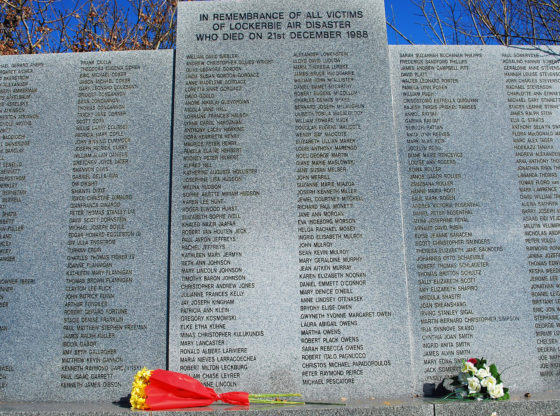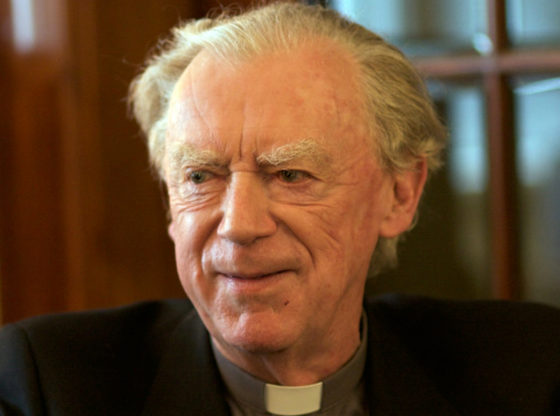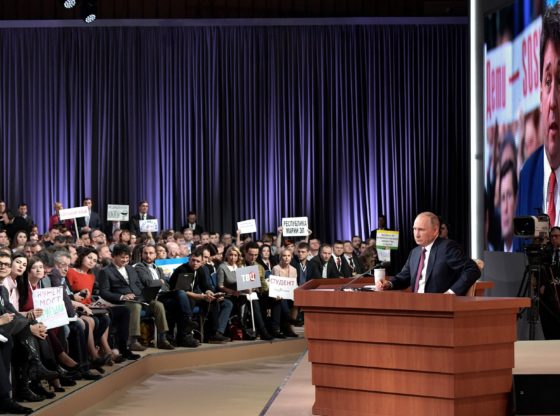Change is afoot in Saudi Arabia as the new Crown Prince rolls out measures aimed at reforming the economy and society. But what has prompted these moves? And how far are the gulf state’s reforms likely to go? Oliver Goff casts an eye over the issues.
With an estimated worth of around $1.4 trillion, the royal family of Saudi Arabia, known as the House of Saud, is unarguably one of the richest dynasties in the world. Coupled with this eye-watering wealth is absolute power. The royal family controls and shapes the very fabric of life in Saudi Arabia, and has done so since the country’s formation in September 1932. The family’s omnipotence is reflected perfectly in the name of its domain: Saudi Arabia literally means ‘Saud’s Arabia’.
The Arabian Peninsula boasts a proud heritage and a rich history, including being the birthplace of Islam, the world’s second largest and fastest-growing religion. Born in the very lands known today as Saudi Arabia, it is perhaps no great surprise that Islam itself forms the backbone of the country’s political, social and cultural character.
The Wahhabi ideology has been described by the European Union as the “main source of global terrorism” in the world today.
The relationship between Islam and the House of Saud is one of particular interest, given the family’s long established partnership with one of Islam’s most notorious sects, known most commonly as Wahhabism. This branch of Islam is known for its austere and ultra-conservative nature. The House of Saud has become ever more maligned for its adherence to it in recent decades. The ideology itself has been described by the European Union as the “main source of global terrorism” in the world today.
Despite the interdependence of the House of Saud and the Wahhabi ideology, there appears to have been a recent recalculation by the royal family. This has been driven primarily by the new Crown Prince, Mohammad bin Salman, who has promised to return the country to moderate Islam. This commitment coincides conveniently with a push to diversify the Saudi economy, which is based primarily on oil, requiring the forging of new and dependable partnerships with the West.
In order to fully consider these developments, it may be helpful to assess some of the key aspects of Saudi politics and culture, in order to better understand what the new Crown Prince must do to make good on his stated plans. This will also illuminate why these plans are so important to Saudi Arabia’s future.
THE HOUSE OF SAUD: CREATING A HOMELAND
The history of the House of Saud begins with the founding of a town named Diriyah, now part of the Saudi capital Riyadh, by a nomadic chieftain named Mani al Muraidi in the 15th century. His descendants established themselves as the rulers of this modest town and its surrounding area. The tribe became increasingly wealthy, due primarily to the town’s location on the banks of the Wadi Hanifa, a valley which offered fertile farming land and irrigation in the sun-scorched lands of Arabia. The tribe survived for centuries as the rulers of the oasis of Dariya. It wouldn’t be until the early 18th century that the eponymous ancestor of the House of Saud, Saud ibn Muhammad ibn Muqrin, would cement himself as the ruler of Dariya, and in turn sow the seeds of greatness for his house. After ibn Muqrin’s death in 1725, the baton of leadership was passed to his son, Muhammad bin Saud, a young man with unending ambition and an eye for exposing opportunity.
Muhammad bin Saud craved dominion of the lands surrounding Diriyah, an aspiration complicated by the presence of numerous other tribes with equal or greater claims to power in the region. It became imperative to strengthen his claim and such opportunity was to be found in the shape of Muhammad ibn Abd al-Wahhab, an Islamic theologian who sought to root out modern practices that deviated from orthodox Islam. Bin Saud calculated that a partnership with the influential al-Wahhab would allow the House of Saud to infuse its existing material wealth and power with religious zeal.
Bin Saud calculated that a partnership with the influential al-Wahhab would allow the House of Saud to infuse its existing material wealth and power with religious zeal.
This partnership was formalised with the marriage of Bin Saud’s son, Abdul Aziz, with al-Wahhab’s daughter. Abdul Aziz, hoisted by this new found religious legitimacy, wrangled control of most of the Arabian Peninsula, founding what is known as the First Saudi State in 1818.
This initial success was not to last. Ruthless attacks against other Islamic sects convinced the Ottomans and Egyptians that the Saudis were a threat to regional peace. This resulted in the razing of the Saudi capital Diriyah by Egyptian forces, putting an abrupt end to the first Saudi state. The second Saudi state emerged again in central Arabia in the 1820s, and was foiled by severe internal conflicts, assassinations, and civil wars.
The third attempt to establish a Saudi state was hard-fought but successful. It began with the re-taking of Riyadh by the Saud family, against great odds. Further consolidation occurred in 1925 after the Saudis defeated their most dangerous rivals, the Hashemites, who controlled the vast and important region knows as the Hijaz. It would be in 1932 when the Saud family was to finally realise its greatest ambition. Abdel Aziz declared himself King of Saudi Arabia, an absolute monarchy, unifying the numerous regions that the family had conquered in previous years.
SAUDI ARABIA: A HOME FOR FUNDAMENTALIST ISLAM
The creation of Saudi Arabia created a homeland for the Wahhabi ideology. The mutual reliance that the royal family and this ideology have developed has ensured that ultra-conservative Islam has permeated the entirety of Saudi society. The tenets of Wahhabism still dictate Saudi politics and culture today. The character of this branch of Islam can be identified most clearly by observing how Saudi society is modelled.
Women’s rights are severely curtailed in accordance with Wahhabi doctrine; the testimony of a woman is worth only half that of a man in Saudi Arabia’s legal system. The ability of women to travel freely is limited due to their inability to obtain a passport, or travel abroad, without the express permission of a male guardian.
Women’s rights are severely curtailed, in accordance with Wahhabi doctrine; the testimony of a woman is worth only half that of a man in Saudi Arabia’s legal system.
Similar medieval attitudes can be observed in the form of judicial punishment. In 2014, a political blogger named Raif Badawi was jailed and sentenced to 1,000 lashes for ‘insulting Islam through electronic channels’. The Wahhabi ideology also condemns Shia Muslims as heretics. A prominent Shiite cleric, Sheikh Nimr, was executed on charges of terrorism, having encouraged peaceful demonstrations against government oppression of the Shia community, an oppression which he described as “bordering on apartheid”.
This internal ultra-conservatism runs alongside a foreign policy equally virulent. Saudi wealth has allowed Riyadh to export this toxic form of Islam to every corner of the world, with current estimates suggesting more than $100 billion has been spent on spreading the ideology in recent decades. The House of Saud has built thousands of mosques and madrassas (Islamic schools) in both the Muslim world and beyond. These institutions promote a narrative of hatred and a deep-rooted distrust of other Islamic denominations.
The militant quality attributed to Wahhabism is most chillingly embodied by a particularly notorious group of adherents to its ideology, the so-called Islamic State of Iraq and Syria (ISIS). Whilst the terror group incorporates modern Islamic beliefs alien to the Saudis, they hold the Wahhabi concept of takfir as a cornerstone of their ideology. This concept encourages Muslims to brand other followers of the faith as apostates, making them liable to excommunication, violence, and even death.
Prime Minister Theresa May has refused to publish a report, commissioned by her predecessor David Cameron, aimed at identifying the origins and scale of terrorist funding from Saudi Arabia. The report, according to critics, will never be published due to the implications for UK-Saudi relations.
Whilst providing a theological underpinning for Islamic militancy, the Saudis are also known to have provided financial support to Sunni terrorist groups. Wikileaks exposed emails composed by then US Secretary of State Hillary Clinton whose correspondence, in the form of a State Department cable, stated that “Saudi Arabia remains a critical financial support base for al-Qaeda, the Taliban, LeT [Lashkar-e-Taiba in Pakistan]”.
Prime Minister Theresa May has refused to publish a report, commissioned by her predecessor David Cameron, aimed at identifying the origins and scale of terrorist funding from Saudi Arabia. The report, according to critics, will never be published due to the implications for UK-Saudi relations, as the sensitive information contained therein would potentially undermine a booming trade partnership, the UK recently having agreed a £3.5 billion arms deal with the gulf state.
A NEW PRINCE. A NEW SAUDI ARABIA?
At the head of the House of Saud sits the King, currently Salman bin Abdulaziz Al Saud, who inherited the throne in January 2015. Whilst King Salman holds unlimited power in a formal capacity, it is his son, Mohammad bin Salman - also known as MbS - who has been identified as the driving force behind recent apparent efforts to initiate reform.
The rise of Prince Mohammad bin Salman within the House of Saud has been gradual. He was appointed Minister of Defence in January 2015. In April 2017, he was handed control of Saudi Aramco, the country’s state-owned oil company, valued at between $2 trillion and $10 trillion. Then on 21 June 2017, following his father’s decision to depose then Crown Prince Muhammad bin Nayef, Mohammad bin Salman was appointed Crown Prince, making him heir to the throne.

The young Prince has not wasted any time in communicating his new plans for Saudi Arabia. He has promised to return the country to moderate Islam, after what he views as a worrying escalation of fundamentalist Islamic thought within the region in recent decades. A number of policies have already been enacted that suggest nothing less than a cultural revolution. Women in Saudi Arabia have been granted the ability to obtain a driving license, overturning a core value of Saudi conservatism. Guardianship laws that restrict the movement and personal autonomy of women in Saudi Arabia have also been scaled back. Women will be allowed to access government services such as health care and education without a guardian for the first time in over three decades.
Further erosion of the ultra-conservative base of Saudi Arabian culture can be seen in the lifting of the ban on cinemas, which has been in force for 35 years. The first theatres will be opened in March; 2,000 cinemas are expected to be open within 12 years. The prince has also spearheaded the creation of an Islamic Centre tasked with certifying the sayings of the prophet Muhammed. The organisation will also seek to produce theological rebuttals to militant readings of Islamic scripture.
This attempt to re-imagine the very fabric of Saudi culture has been supplemented by an assault against those who have enjoyed unchecked power for decades.
This attempt to re-imagine the very fabric of Saudi culture has been supplemented by an assault against those who have enjoyed unchecked power for decades. The Crown Prince, heading up a newly founded anti-corruption agency, has detained numerous high status individuals without charge, including members of the royal family, who he has accused of siphoning off state wealth for private gain. Critics have labelled this move an opportunistic power grab aimed at neutering potential rivals. Whatever it may be, it certainly is not business as usual for Saudi Arabia.
Another central concern of the Crown Prince is to diversify the country’s economy, which is sustained almost entirely by oil. A strategy - known as Saudi Vision 2030 - seeks to bring industries such as tourism, international business, and technology to the heart of the Saudi economy. The flagship policy of this strategy is the creation of $500 billion economic zone on the Red Sea, named Neom, which - it is hoped - will entice foreign investment from around the world. The proposed listing of 5 percent of Saudi Aramco’s shares on a major stock exchange further portrays a willingness to liberate the country’s once insular economy - both the UK and US are vying for places in the listing.

However, whilst the aforementioned developments appear promising, there is much more to say about the new Crown Prince. Despite protesting a willingness to listen to the Saudi people, he has presided over a worrying persecution of political activists and intellectuals. According to the Gulf Centre for Human Rights: “The human rights situation in Saudi Arabia has markedly deteriorated and there has been a renewed crackdown against human rights defenders, since the accession of Mohammad bin Salman as Crown Prince in June 2017”.
Two influential Saudi Arabian human rights activists, Abdulaziz al-Shubaily and Issa al-Hamid, were detained in September 2017, charged with ‘communicating with international organisations in order to harm the image of the state’. Issa al-Hamid was sentenced to 11 years in prison. Ben Emmerson, the United Nations Special Rapporteur on Counter Terrorism, has accused Saudi Arabia of using its counter-terrorism laws to prosecute human rights defenders, writers, and peaceful critics.
The Prince has made a pragmatic calculation: Saudi wealth, whilst formidable, rests upon a resource that will one day be replaced. In order to diversify the country’s economy and safeguard its future, Saudi Arabia must become a less embarrassing economic partner to the modern world.
In assessing these developments, there is much to consider. It can be argued that the new Crown Prince has identified Wahhabism as being counter-productive to the development of any modern industrial country. In this regard, his reform strategy can be read as an attempt to save Saudi Arabia from a bleak future of cultural introversion and economic stagnation. However, we might also use the term ‘reform’ with caution: the notion that the Crown Prince is set to cede power to the people, and that the House of Saud is at last willing to humour dissenting voices, appears nothing short of utopian.
The Prince has made a pragmatic calculation: Saudi wealth, whilst formidable, rests upon a resource that will one day be replaced. In order to diversify the country’s economy and safeguard its future, Saudi Arabia must become a less embarrassing economic partner to the modern world. The country must shake off its toxic reputation as an abuser of human rights, and as a peddler of hatred and terrorism.
The sincerity of the Prince’s promise to restore moderate Islam and respect for human rights to Saudi Arabia remains to be seen. If the modern world is to truly trust the House of Saud as an ally, the family must be seen to relinquish its century-old support for the virulent Wahhabi ideology, and its ruthless approach towards domestic critics. Whilst some encouraging first steps have been taken, there still is an awful long way to go.
Oliver Goff has a Master’s degree in International Security and Counter-terrorism from the University of Dundee. His research interests include: the rise of Political Islam in Europe, the phenomenon of Islamic Revivalism in the Muslim world and the role of modern technology within the operations of terrorist groups. Contact Oliver at: [email protected]
Feature image: Deputy Crown Prince of Saudi Arabia Mohammad bin Salman Al Saud. Image: kremlin.ru











